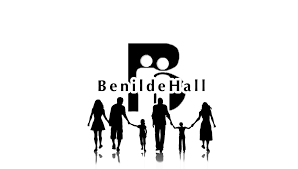Blog
23 Apr Funding Alert! Grants for Community Mental Health Centers
Substance Abuse and Mental Health Services Administration (SAMHSA) Attention community mental health centers! Does your organization serve individuals with serious emotional disturbance (SED), serious mental illness (SMI), and/or co-occurring disorder (COD) of SMI or SED and substance use disorders? And were your clients, staff, and services impacted by the COVID-19 pandemic? SAMHSA is now accepting applications for its 2021 Community Mental Health Centers (CMHC) grant program. During the pandemic, the needs of many individuals with behavioral health conditions – including minority populations and economically disadvantaged communities – have not been effectively met. The CMHC program aims to support CMHC staff and other caregivers and to restore the delivery of clinical services impacted by the pandemic. Proposals for this program are due May 21, 2021, with an anticipated project start date of September 30, 2021.20 Apr Children’s Center for the Visually Impaired (CCVI) Receives $120,000 Grant from Jackson County eitas
Children’s Center for the Visually Impaired (CCVI) recently received a grant for $120,000 from Jackson County eitas to provide scholarship assistance to students and families.19 Apr Volunteer Grants: Turning Service into Support By Hayley Waynick, GPC
Posted at 19:44h
in Competency One, Hayley Waynick, GPC, Program Development, Strategy, Volunteering
In our April blog series, we are focusing on “Helping Hands.” Last week, we explained how to track volunteer time and efforts and how to include these figures in grant budgets (click to read the blog). Volunteers can add significant value to your project budgets and your agency’s bottom line, but did you know they can also leverage additional grant dollars for your organization? Let’s explore some of the strategies you can use to successfully in pursue volunteer grants.
15 Apr Funding Alert! Distance Learning and Telemedicine Grants
United States Department of Agriculture – Rural Development, Rural Utilities Service Does your organization provide education or health care services in rural areas? The United States Department of Agriculture (USDA) is now accepting proposals for its 2021 Distance Learning & Telemedicine (DLT) grants program. The goal of the DLT program is to enable and improve rural access to education, training, and health care through modern telecommunications technology. This 27-year-old program has helped to establish hundreds of distance learning and telemedicine systems in rural areas throughout the United States. Proposals for this year’s solicitation are due June 4, 2021.13 Apr Benilde Hall Receives $67,000 Grant from the Emergency Solutions Grant
Benilde Hall was recently awarded a $67,000 grant from the Emergency Solutions Grants (ESG) program to deliver housing and supportive services to 500 adult males who are experiencing homelessness, substance use disorders, and/or mental illness through our Safe Haven program.12 Apr Value Your Volunteers by AGS Staff
If your organization or program works with volunteers, you know firsthand that these individuals are often invaluable assets in delivering your mission. While volunteer management professionals know how to communicate the intrinsic value of these services to the community and the volunteers who provide them, we have to ask ourselves…. are we as grant professionals properly communicating their monetary value to current and potential grant funders? As we continue to celebrate National Volunteer Month, let’s explore ways to express the value of volunteer contributions. This will help you to present accurate and comprehensive grant budgets that fully express the extent of your organization’s in-kind commitment.08 Apr Funding Alert! Community Health Workers for COVID Response and Resilient Communities Grants
Centers for Disease Control and Prevention Does your government agency work with Community Health Workers (CHWs)? The Centers for Disease Control and Prevention (CDC) is now accepting applications for its 2021 program, Community Health Workers for COVID Response and Resilient Communities (CCR), which supports the goals of the CARES Act in preventing COVID-19 and protecting individuals from the public health implications of the pandemic. This program supports the training, deployment, and engagement of CHWs across the country to support COVID-19 response efforts. Applicants may propose a variety of strategies for scaling up the capacity of CHWs, with a focus on communities and populations that have been most affected by COVID-19. CCR proposals are due May 24, 2021.03 Apr The Value of an Experienced Reviewer by Tracey Diefenbach, GPC
Posted at 11:11h
in Competency Seven, Evaluation, Federal Grants, Professionalism, Tracey Diefenbach, GPC, Writing
As a grant professional in the field for almost 20 years, I have come to understand and deeply appreciate the value of a helping hand. One of the most valuable helping hands I have seen is proposal reviews, particularly for federal proposals. I have served...


